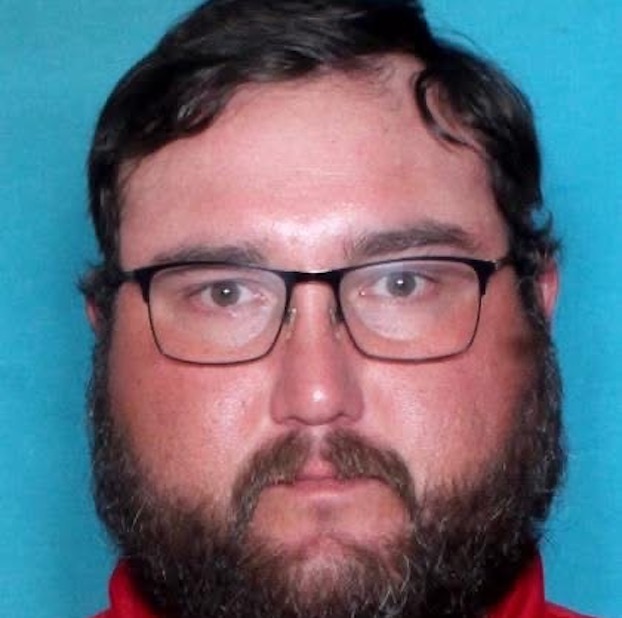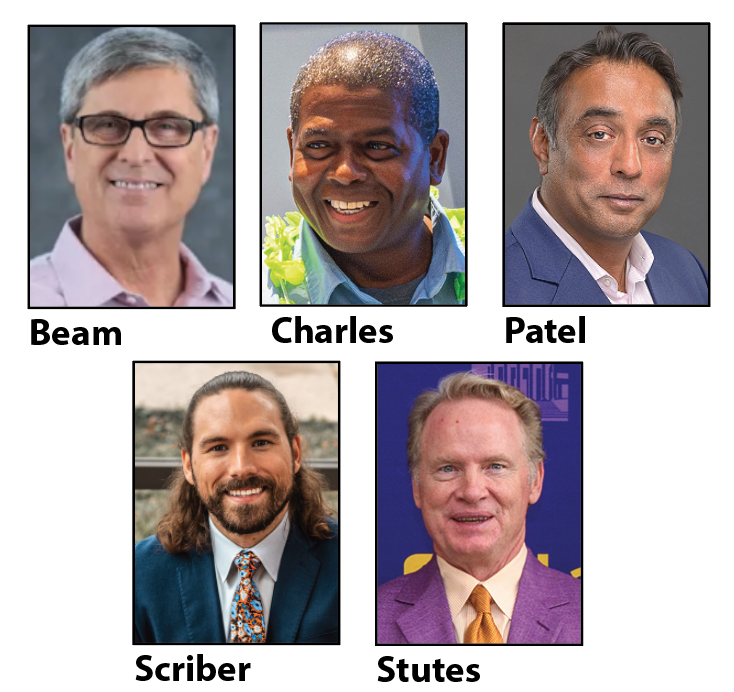True grit: Joseph’s competitive fire sets path to HOF
Published 8:49 am Friday, June 21, 2024
EDITOR’S NOTE: Last in a series about nine inductees to be enshrined in the Louisiana Sports Hall of Fame Saturday in Natchitoches.
By Matthew Bonnette
Special to the American Press
One word best describes Kerry Joseph: competitor.
That competitiveness has taken him around the globe where he’s won multiple pro football championships in Canada and Europe.
That competitiveness helped him guide McNeese State to four of its greatest years in school history.
That competitiveness carried into a coaching career that started as an intern with the New Orleans Saints, to offensive coordinator at McNeese, back to the NFL with the Seattle Seahawks where he helped coach the running backs, and as quarterbacks coach with Chicago where he’ll mentor the NFL’s 2024 No. 1 draft pick, Caleb Williams.
It’s also that competitiveness that has fueled a Hall of Fame career. Joseph will be enshrined into the Louisiana Sports Hall of Fame Saturday in Natchitoches.
“This honor is very special to me because there are so many great people, athletes and coaches, that have gone before me,” said Joseph about his induction. “Now I get to join this family of athletes and coaches in the Louisiana Sports Hall of Fame. I never once thought about this while playing, but it is a great reward for all the hard work, dedication, and sacrifices that I made to accomplish my dreams. Most importantly, the sacrifices my mother, father and brothers made for me.”
It was that family of support and sacrifices that helped build a Hall of Fame career.
“I grew up in a competitive family, but a disciplined family,” said the New Iberia native. “I had to compete with my oldest brother, Kevin, and his friends. My younger brother, Kendall, kept me on my game because he always tried to win whenever we competed.”
That fight to compete began at the age of 5 when he participated in tee-ball, then learned of his talents at 12 with how good he could be in baseball and football.
But knowing how good you can be and being that good takes discipline, focus and dedication.
“I always had people to look up to and push me to be my absolute best,” Joseph said. “Our dad instilled a mentality in us to work hard and have dedication. We could never show signs of being tired when practicing or playing a game.”
At New Iberia Senior High School, as a senior in 1991, he won the state title in the javelin and discus events and also played in the basketball state semifinals. Although, as a four-sport star, football was always his No. 1 love.
“I always enjoyed playing football because I was able to play quarterback and have the ball in my hand,” he said.
Joseph says two McNeese Hall of Famers had a direct influence on him in his high school days — Merlin Walet and Bill Simon. Walet pushed Joseph to be the best he could be while Simon coached him in his senior season, bringing in an offense that allowed Joseph to throw down the field and eventually earn him a scholarship at McNeese where roomed with the person who would introduce him to the coaching profession, Lance Guidry.
“Kerry has always been like a brother,” said Guidry, defensive coordinator for the Miami Hurricanes and Joseph’s McNeese teammate in the 1992 and ’93 seasons. “When I first met him, he had the build of a player that looked like he could play any position in any sport. As a person, he was always about business when it came to his education and being the best quarterback and teammate possible.”
Joseph made his first start as a Cowboy during his redshirt freshman season in Week 5, one week after coming off the bench to lead McNeese to a 14-point fourth quarter and a come-from-behind win over Nicholls State. That was one of five fourth-quarter comeback victories that season, earning the team the nickname “Cardiac Cowboys.”
What transpired was a collegiate career that saw Joseph accumulate 7,874 passing and 9,674 total offensive yards while compiling a 43-10 record with two Southland Conference championships in 1993 and ’95, and four NCAA playoff appearances, including the program’s first playoff win in 1992 (23-20 at Idaho) and semifinal appearance in 1995.
“There are so many people that influenced me at McNeese,” Joseph said. “(Head coach) Bobby Keasler taught me patience and how to trust the process. (Strength coach) Ronald Motton developed a mentality of physical and mental toughness and I would refuse to let him break me. (Offensive coordinator) Mike Santiago coached me tough as a quarterback and allowed me to utilize my God-given talent.
“They all loved me like a son and coached me to be my absolute best.”
Joseph made dozens of memorable plays during his McNeese career, but one is burned into the minds fans. It was one Joseph, at the time, called a miracle.
It was his senior year in 1995, Week 3 of the season at James Madison. McNeese’s regular punter, Brian Stewart, was sidelined with an injury after his first punt of the game so Joseph, who had two career punts for a 51-yard average, was the replacement.
JMU led 24-19 with just over 12 minutes remaining in the fourth quarter. Facing a fourth-and-6 from its own 42-yard line, Joseph dropped into punt formation only to see the snap sail over his head, rolling inside the McNeese 10-yard line. Joseph chased down the loose ball, picked it up, turned and ran upfield and booted it from the 12.
The ball sailed high into the air as the JMU crowd looked in amazement. The ball eventually settled at the James Madison 12-yard line, 78 yards downfield. McNeese rallied to score 11 points in the closing minutes to win the game 30-24 to keep its No. 1 ranking and unbeaten status.
“That play changed the field position and definitely changed the momentum of the game,” Joseph said.
That 1995 season was one that saw the Cowboys post an 11-0 regular-season record while ranking No. 1 in the Division I-AA (now Football Championship Subdivision) national polls for most of the season. McNeese lost 25-13 to Marshall in a home semifinal game to finish the season 13-1. The Thundering Herd were led by freshman quarterback Chad Pennington, who went on to play 11 seasons in the NFL.
“Definitely the most memorable moments at McNeese,” said Joseph of the ’95 season. “Both on the field and academically because I also earned my bachelors of business that year.
“But playing in ‘The Hole’ (Cowboy Stadium) was always electric. The place was jam-packed with Cowboy fans every Saturday night.”
Joseph ended his college career as the school record holder for most of the passing categories, and today, still owns the record for most career touchdown passes at 67 while ranking second in passing yards and total offense. He earned all-SLC honors in 1994 and ’95, was the SLC and Louisiana Player of the Year in 1995, and the league’s Rookie of the Year in 1992.
His two-decade professional career, which saw him play in the NFL, CFL, NFL Europe and World League, began as a quarterback with the Cincinnati Bengals in 1996, and in 1997, slotback for the Washington Redskins. He switched to defense, playing safety for Seattle where he appeared in 56 games, making 14 starts for the Seahawks from 1998-2001. In his four-year NFL career, Joseph recorded 143 tackles, one sack and three interceptions.
He’s one of a handful of modern-day NFL players to play both sides of the ball.
Prior to joining the Seahawks, he played for the London Monarchs in 1997 and then the Rhein Fire in 1998, where at quarterback, he led the team to the World Bowl Championship.
After his time playing in Seattle ended, he headed to Canada where he excelled at quarterback for four teams starting with the Ottawa Renegades from 2003-05 after being acquired as a free agent.
“I quickly discovered Kerry was a man of tremendous depth,” said Kavis Reed, who was Ottawa’s defensive backs coach and special teams coordinator. “Every day, Kerry showed up with the same attitude. He was focused on getting better as a player, with a reflectiveness that is enviable. He always looked at how he could be better regardless if we won or lost a game. He demanded accountability of everyone around him and had the uncanny ability to effectively communicate with everyone.
“He’s a natural leader that understands that leadership is about relating to everyone at the level of where they are at. He has a beautiful way of making those around him better.”
His most successful season in the CFL followed when he was selected by the Saskatchewan Roughriders as the first overall pick in the Ottawa Renegades dispersal draft. There, he became a household name and celebrity to the CFL faithful.
“Kerry found a brand of football that catered to his athleticism,” said CFL sportscaster and all-time great Matt Dunigan, a 2019 LSHOF inductee. “So much so, he became only the third quarterback in CFL history to rush for over 1,000 yards in a season. Not only could he move the chains with his legs, he could sling it, too.”
It was in his second season with the Roughriders, the 2007 campaign, when he led his team to the Grey Cup title throwing for 4,002 yards and 24 touchdowns while rushing for another 737 yards and 13 scores. He was named the CFL’s Most Outstanding Player and a CFL All-Star for his efforts.
Joseph was surprisingly traded following that season to Toronto where he re-connected with Reed, now the Argonauts’ defensive coordinator.
“That was one of the most memorable experiences I ever had with Kerry,” said Reed, “when he was traded to the Argonauts after winning a championship and being named the league MVP. I thought it was weird because we had a quarterback that was successful the previous year and had established himself as a team leader.”
Said Kavis: “Kerry’s arrival created a challenging situation in the locker room, which was split between supporting Kerry and the incumbent quarterback. The humility and leadership Kerry demonstrated was exceptional. Instead of perpetuating more discord, Kerry worked hard to bring the locker room together under the idea that competition is healthy for the team and that taking sides would be the detriment of the team. His maturity and leadership was noteworthy and made me proud.”
Joseph played two seasons at Toronto and, after a stint at Edmonton, he announced his retirement in January of 2014.
That lasted all of 10 months. In October of that year, Saskatchewan came calling while Joseph was serving as a coaching intern with the New Orleans Saints, and lured him out of retirement and helping the Roughriders through the playoffs. Joseph retired once again as a player in December, this time for good.
In August 2019, he returned to Saskatchewan to be inducted into the organization’s Plaza of Honour. He’s also been inducted into the halls of fame at NISH, McNeese and the SLC.






